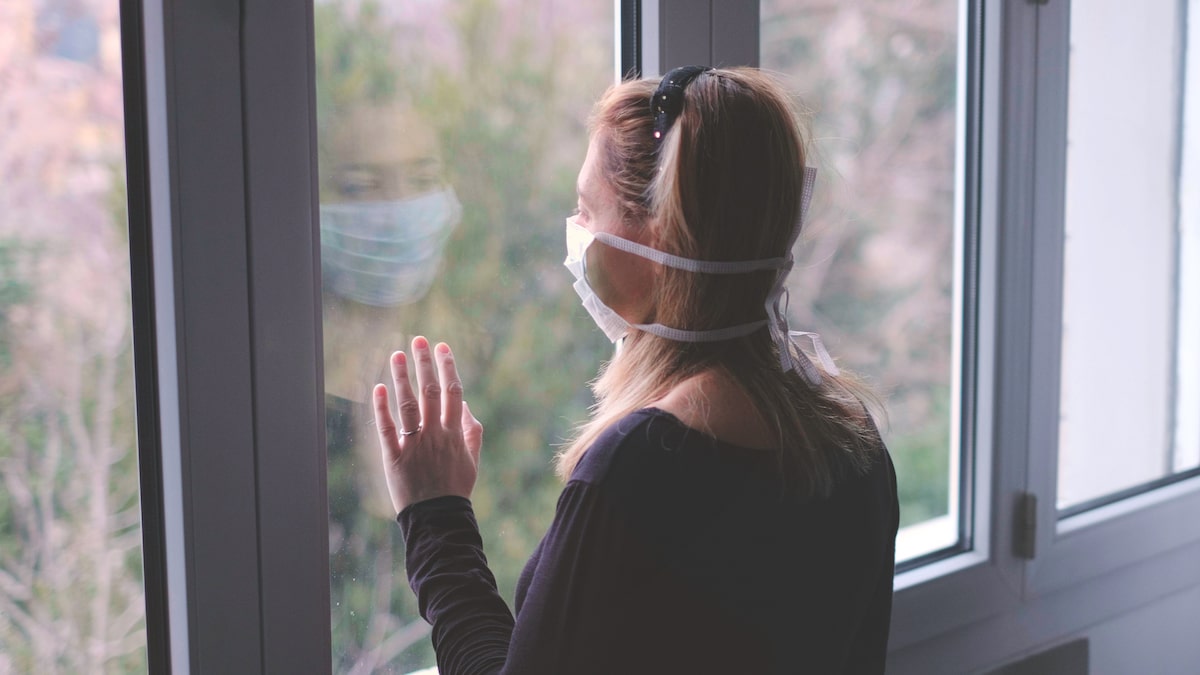Lyne Stokes logged onto the Zoom call, not knowing what to expect but needing to feel understood.
The recovery support specialist from Rushford had come down with COVID-19 in September and said her life hadn’t been the same since. Struggling with extreme exhaustion, body aches and a loss of taste and smell, Stokes felt depressed and anxious.
“I’m someone who would get up before the alarm and just go, but I didn’t have my life,” she said. “I couldn’t get up, my eyesight was blurry, I didn’t want to eat because if you can’t smell or taste the food, why bother?”
During the day, while continuing to work full time, Stokes struggled with brain fog, a common symptom of COVID-19 long-haulers, or those who are feeling the virus’ effects long after recovering. Few people empathized and she was told not to share her diagnosis.
“People don’t understand what long-haulers go through. They just think we can get over it, we’ll feel better soon,” she said, adding that she thought she’d improve if she could get enough rest and sleep.
Logging onto the COVID Support Group launched for Hartford HealthCare colleagues in February, however, was a game-changer for Stokes. Within minutes, she felt understood and validated by mental health workers from the Institute of Living and other long haulers. Stokes, through the support of the group, realized keeping secret about being a long hauler was doing more harm than good.
Coordinated by Tabassum “Taby” Ali and Denielle McCarthy, psychiatric nurse practitioners at the Institute of Living, the group is intended to give that feeling of comfort to colleagues struggling to function after COVID-19.
“Coping with uncertainty has been the theme since Day Zero,” Ali noted, adding that the goal is to leave colleagues feeling they can “choose what to give their attention to” in their lives to move forward.
McCarthy agreed, adding that it’s often a challenge to look too far in the future, so they stress focusing on small steps.
“It takes a lot of effort and planning to stay grounded and in the moment,” she said.
For Stokes, that has meant evaluating her activities before COVID – things like running, walking the dog and planning meals with her partner – and making a plan to inch back to that place.
“I accept that I can’t do it all right now but I know I will,” she said. “Like I tell my clients, it’s important to make a plan for today.”
An avid educational researcher who found little information on long haul effect, Stokes said made it her mission to find the most accurate, up-to-date data. She hopes to share knowledge with colleagues via the weekly Zoom support group meetings. This is another goal of the venture, McCarthy said.
“We are creating a space for the abnormality of this illness. Not all who work for a healthcare system know how to access resources,” Ali added.
Others in the group share feelings of anger and frustration at people in the community who don’t follow social distancing or mask-wearing guidelines. The comments are met with agreement, and a suggestion from McCarthy.
“We can only control what we do, but being an example when you wear a mask in public and at work is powerful,” she said.
Gentle advice like this is normal from McCarthy and Ali, who are available to make referrals for mental health care to attendees asking for themselves, friends or family members.
“We have all been affected by COVID in different ways over the past year. This is a safe place for our colleagues to share and process their experiences throughout the pandemic with others who can relate, thereby providing support to one another,” McCarthy said.
The COVID-19 Support Group meets from 3-4 p.m. each Tuesday on Zoom. To sign up to attend, contact Paula Rego at Paula.rego@hhchealth.org. Log-in information will be sent after registration.


